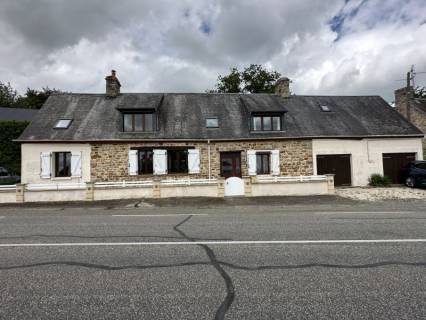Oct 122020
 In a previous article detailing the French inheritance system, the issue of entering into a PACS, or civil union, to avoid death duties was raised. So what is a PACS, what are the benefits and who can enter into one?
In a previous article detailing the French inheritance system, the issue of entering into a PACS, or civil union, to avoid death duties was raised. So what is a PACS, what are the benefits and who can enter into one?
The PACS, or Pacte Civil de Solidarité, was created in 1999, as a means of allowing both same-sex and opposite-sex couples to benefit from similar tax measures and employee rights as those of married couples. So successful has it been that it’s earned its own verb, se pacser. Since it came into being, some two million couples se sont pacsés, but, surprisingly, the overwhelming majority have been of the opposite sex, preferring a low-key alternative to marriage.
For expats, the PACS protects you in France, but is not legally recognised elsewhere. The benefits in France are:
- zero death duties to pay on the death of a PACS partner, as opposed to 60% of their half of your jointly-owned assets, but whereas a spouse automatically inherits at least 25% of the deceased spouse’s estate, a PACS partner is still not considered a héritier réservataire and so both partners need to write wills to ensure each other’s inheritance
- reduced income tax liability, with a PACS couple completing joint tax returns and being taxed on the total income of the household as a couple
- the automatic transferral of rental contracts to the surviving partner in the event of a partner’s death
- entitlement to attend three obligatory medical examinations if the partner is pregnant
- entitlement to days off work because of a birth or adoption, or the death of a partner
- the obligation of an employer to take into account the holiday dates of the PACS partner
- the obligation of an employer to allow the same holiday dates if both partners work for the same company
- the incomes of both partners are taken into account when applying for family allowances, housing allowances and disability allowances
Other important points to consider are:
- PACSed couples are treated as holding their assets en indivision, which means they retain the assets each owned on entry into the PACS, and all future assets are owned in separately divisible 50% shares. This makes ending the PACS relatively uncomplicated, with neither partner having a claim on the other’s assets.
- Partners are liable for each other’s debts (unless they’re excessive) and any contracts incurred after the agreement is made
- Partners do not receive adoption, lineage or custody rights
You can enter into a PACS at your local Mairie, or town hall. It is worth visiting them in advance to explain your circumstances and obtain a current list of documents that are required – the list below was correct at the time of writing. The process is straightforward and relatively inexpensive, but you have to provide several documents, and these can take time. Below are the required documents, listed in a logical order to obtain them:
- Your birth certificate – you will need to apply to the British government for an Apostille copy of your birth certificate. This requires your date and place of birth and your parents’ full names. You can apply online at the following website:
https://www.ukofficialrecords.co.uk/apostille_certificates/apostille-birth-certificates.asp
Allow three weeks for the certificate to arrive. The current price is £85 plus postage, payable by credit card through the website. For the sake of the PACS the certificate needs to be less than 6 months old, so once it arrives you have a time limit to get the rest of the documentation in place. Please note the Mairie will keep your birth certificate as part of their records – you will not be able to use it again.
At the same time you can place an email application for the Certificat de non-PACS by writing to the following email address: pacs.scec@diplomatie.gouv.fr , stating your full name, date and place of birth and postal address. This certificate now includes three declarations: Certificat de Non-Pacs, Attestation de Non-Inscription au Répertoire Civil and Attestation de Non-Inscription au Répertoire Civil Annexe. Allow three weeks to receive the document. There is no cost for this service. - Once your birth certificate arrives, you will need to get it translated into French by an authorised court translator, or expert judiciaire appointed by a court of appeals. Enquire at your Mairie for a qualified, local translator.
- You will then need to send your original birth certificate, a copy of it and a copy of your passport to the British Embassy to obtain a Certificat de Coutume. This states that there is no legal impediment to you entering into the PACS. Allow up to three weeks for this to be returned. The fee is £50 each plus €6.55 postage, payable by credit card. For details and to download the application form, see the following website: https://www.gov.uk/marriage-abroad
- There are a further three French documents to download online – these are straightforward and mostly require your full name, date and place of birth and address, and those of your partner. Search online for the following numbers. They are: Cerfa 15726 (déclaration conjointe de conclusion d’un PACS), Cerfa 15431 (l’attestation sur l’honneur indiquant l’adresse commune) and Cerfa 15432 (l’attestation sur l’honneur de l’absence de lien de parenté ou d’alliance). Fill them in but don’t sign them yet – you’ll do that at the Mairie.
- A photocopy of your passport
Once you have all these documents in place, take them to your local Mairie to allow them to check that everything is in order, before making an appointment for the actual signing. There is no fee for the PACS certificate, or for the official’s time. The Mairie does not keep a copy of the certificate, so make sure to photocopy it. If you have a will registered with a notaire, it makes sense to file a copy of your PACS certificate along with it.
 Ending a PACS is straightforward, and can be done through a court procedure by writing a letter from one partner to the other, or simply by one partner marrying someone else. There is no requirement to provide for the former partner, and no risk to assets acquired before entering the PACS.
Ending a PACS is straightforward, and can be done through a court procedure by writing a letter from one partner to the other, or simply by one partner marrying someone else. There is no requirement to provide for the former partner, and no risk to assets acquired before entering the PACS.
The ‘to do’ list is actually less daunting than it looks! It may take a little time, but this is one piece of paper which could save you a lot of money and heartache in the long run. For the peace of mind alone, it’s well worth the effort.










